Have you ever wondered how long your beloved vinyl records will last? Vinyl records, made from polyvinyl chloride (PVC), have the potential to stand the test of time if properly cared for. So, let’s dive into the factors that affect their longevity and how you can preserve them for years to come.
Key Takeaways:
- Vinyl records made from PVC can last for over a century with proper care.
- Exposure to sunlight, cleanliness, humidity levels, storage conditions, and the quality of the record player all impact record lifespan.
- Storing records in normal environmental conditions and taking maintenance steps can significantly extend their lifespan.
- Proper handling, regular cleaning, and investing in quality equipment can help preserve vinyl records.
- By following preservation and care tips, you can enjoy your vinyl records for many years.
Factors Affecting Vinyl Record Lifespan
Proper care and storage are essential for preserving the lifespan of vinyl records. Several factors can impact the longevity of these precious musical treasures. By understanding and taking preventative measures, you can enjoy your vinyl collection for years to come.
“Vinyl records are not only fragile but also susceptible to various environmental factors. It’s important to be aware of these factors to ensure the best possible preservation of your records.”
One of the primary factors that can affect vinyl records is exposure to sunlight. Prolonged sunlight exposure can cause warping and distortion, significantly impacting the sound quality. Therefore, it is crucial to keep your records out of direct sunlight and store them in areas with less extreme temperatures. This simple step can go a long way in protecting your collection.
Regular cleaning is another essential aspect of vinyl record care. Dirt, dust, and fingerprints can accumulate on the surface, leading to unwanted noise and diminished sound quality. To keep your records in optimal condition, use a carbon fiber brush to gently remove debris before each play. This small but effective step helps preserve the quality of the vinyl and ensures a clean, enjoyable listening experience.
Humidity is another critical factor to consider when preserving vinyl records. High humidity levels can create a static charge, attracting dust and dirt to the surface. To mitigate this risk, it is recommended to maintain moderate humidity levels in the storage area. Additionally, storing records vertically and avoiding stacking them can prevent warping and cracking.
The equipment used to play vinyl records also plays a significant role in their longevity. A turntable with a good stylus and proper counterweight can help minimize wear and tear on the records, ensuring their long-lasting performance.
Vinyl Record Care Instructions:
- Keep records out of direct sunlight and extreme temperatures.
- Regularly clean records with a carbon fiber brush before each play.
- Maintain moderate humidity levels to prevent static charge and dust attraction.
- Store records vertically and avoid stacking to prevent warping and cracking.
- Invest in a high-quality turntable with a good stylus and proper counterweight.
By following these vinyl record care instructions and implementing proper storage techniques, you can ensure the longevity and optimal performance of your vinyl collection. Preserving these musical treasures will allow you to enjoy the rich sound and nostalgia of vinyl for years to come.
Prolonging Vinyl Record Lifespan: Care Instructions
Preserving the lifespan of vinyl records requires proper care and handling. By following a few essential tips, you can ensure that your beloved records stay in excellent condition and provide enjoyable listening experiences for years to come.
Proper Handling
When handling vinyl records, always remember to hold them by the inner label and edges. Touching the grooves with fingertips can transfer oils and attract dust, leading to potential damage and affecting sound quality. By practicing proper handling techniques, you can prevent unnecessary wear and tear.
Storing in Ideal Conditions
Protecting vinyl records from the elements is crucial for their longevity. It is recommended to store records in environments with moderate humidity levels and away from direct sunlight. Excessive moisture or exposure to sunlight can warp records and deteriorate their quality over time. Consider investing in record storage solutions, such as sturdy crates or shelves, to keep your collection organized and well-protected.
Regular Cleaning
Cleaning vinyl records regularly is essential for maintaining optimal sound quality. Using a carbon fiber brush to remove dust and debris before each use can help prevent buildup and potential damage during playback. Additionally, store records in their sleeves after each use to further protect them from dirt and dust particles.
Invest in Quality Equipment
A quality record player and accessories can greatly contribute to prolonging the lifespan of vinyl records. Ensure your record player is equipped with a counterweight, which helps maintain proper tracking force and reduces the risk of excessive wear on the grooves. Invest in a good stylus that is appropriate for the type of records you own, as a worn or damaged stylus can cause irreversible damage to your vinyl.
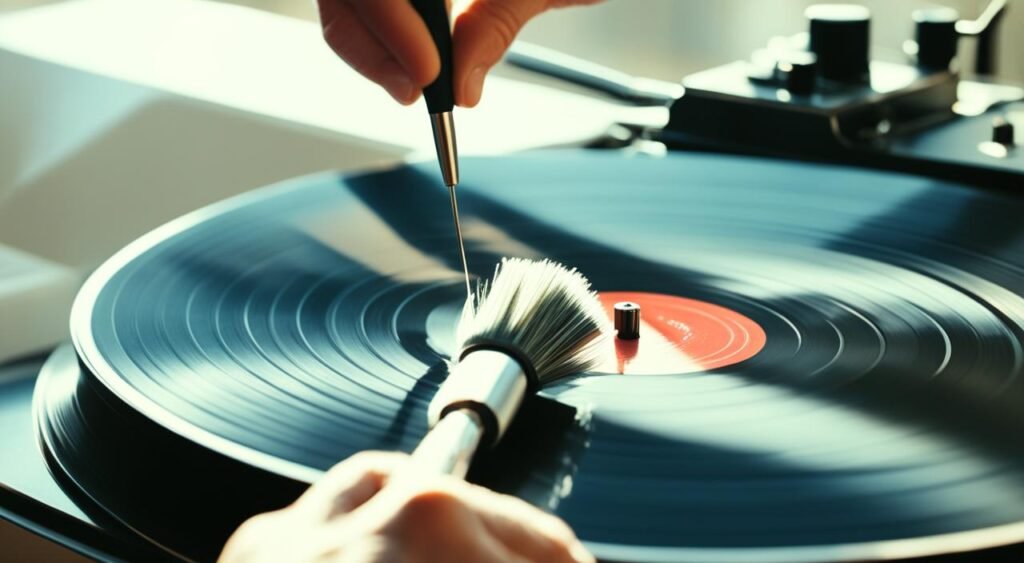
Tips for Vinyl Record Care:
- Handle vinyl records by the inner label and edges to prevent oil transfer and dust attraction.
- Store records in environments with moderate humidity levels and away from direct sunlight.
- Use a carbon fiber brush to clean records before each use and store them in their sleeves.
- Invest in a quality record player with a counterweight and a compatible stylus.
Proper care and maintenance are vital for prolonging the lifespan of your vinyl records. By implementing these care instructions and handling techniques, you can enjoy your vinyl collection for many years, preserving the authenticity and quality of the music.
| Preservation Techniques | Benefits |
|---|---|
| Proper handling | Prevents damage and preserves sound quality |
| Storing in ideal conditions | Reduces the risk of warping and deterioration |
| Regular cleaning | Maintains optimal sound quality |
| Investing in quality equipment | Reduces wear on records and stylus |
Conclusion: Extending the Lifespan of Vinyl Records
Vinyl records have the potential to last for many years, with some records surviving for well over a century. However, their longevity greatly depends on the care and precautions taken by collectors. Factors such as exposure to sunlight, cleanliness, humidity levels, storage methods, and the quality of the record player all contribute to the overall lifespan of vinyl records.
To preserve the longevity of vinyl records, it is important to keep them away from direct sunlight, as prolonged exposure can cause warping and distortion. Regular cleaning using a carbon fiber brush and storing records in their sleeves after use can prevent the buildup of dirt and dust that may affect playback quality. Storing records vertically rather than stacking them can also prevent warping and cracking.
Investing in a good quality record player with a counterweight and a high-quality stylus is essential for preserving vinyl records. The right equipment ensures gentle playback and reduces the risk of damage to the record’s grooves. Additionally, handling records properly by holding them by the inner label and edges, rather than touching the grooves, can prevent the transfer of oils and attract less dust.
By following these preservation and care tips, vinyl record collectors can maximize the lifespan of their beloved music collections and continue to enjoy the warm and nostalgic sound of vinyl for years to come.
FAQ
How long do vinyl records last?
Vinyl records made from polyvinyl chloride (PVC) have the potential to last well over a century when properly cared for.
What factors influence the lifespan of vinyl records?
Factors that influence the lifespan of vinyl records include exposure to sunlight, cleanliness, humidity levels, proper storage, and the quality of the record player.
How does exposure to sunlight affect vinyl records?
Prolonged exposure to sunlight can cause warping and distortion of vinyl records. It is important to keep records out of direct sunlight and in areas with less extreme temperatures.
Why is cleanliness important for vinyl records?
Regular cleaning is crucial for removing dirt, dust, and fingerprints that can affect playback quality.
How does humidity impact vinyl records?
High humidity levels can create a static charge and attract dust and dirt, which can affect vinyl records. Storing records vertically and avoiding stacking can prevent warping and cracking.
What is the best way to handle vinyl records?
It is best to hold records by the inner label and edges to avoid touching the grooves with fingertips, which can transfer oils and attract dust.
How should vinyl records be stored?
Vinyl records should be stored in environments with moderate humidity levels and protected from direct sunlight. Storing them vertically and avoiding stacking can prevent warping and cracking.
How can vinyl records be kept clean?
Keeping records clean by using a carbon fiber brush and storing them in their sleeves after each use can prevent the buildup of dirt and dust.
How does the quality of the record player affect vinyl record lifespan?
Investing in a quality record player with a counterweight and good stylus can help extend the lifespan of vinyl records.
How long can vinyl records last with proper care?
Vinyl records can last anywhere from a year or two to well over 100 years, depending on how well they are cared for.
What are some tips for prolonging the lifespan of vinyl records?
Proper preservation and care tips for vinyl records include protecting them from sunlight, keeping them clean, maintaining moderate humidity levels, storing them vertically, handling them carefully, and using a quality record player.

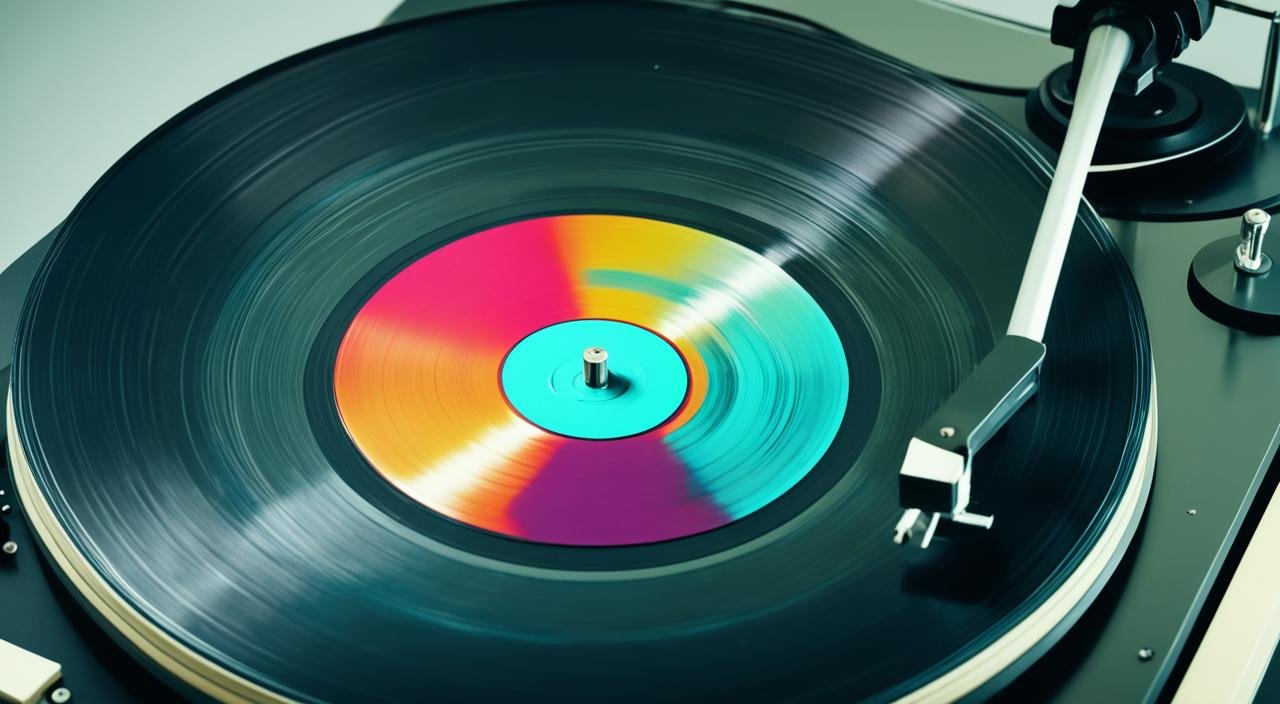

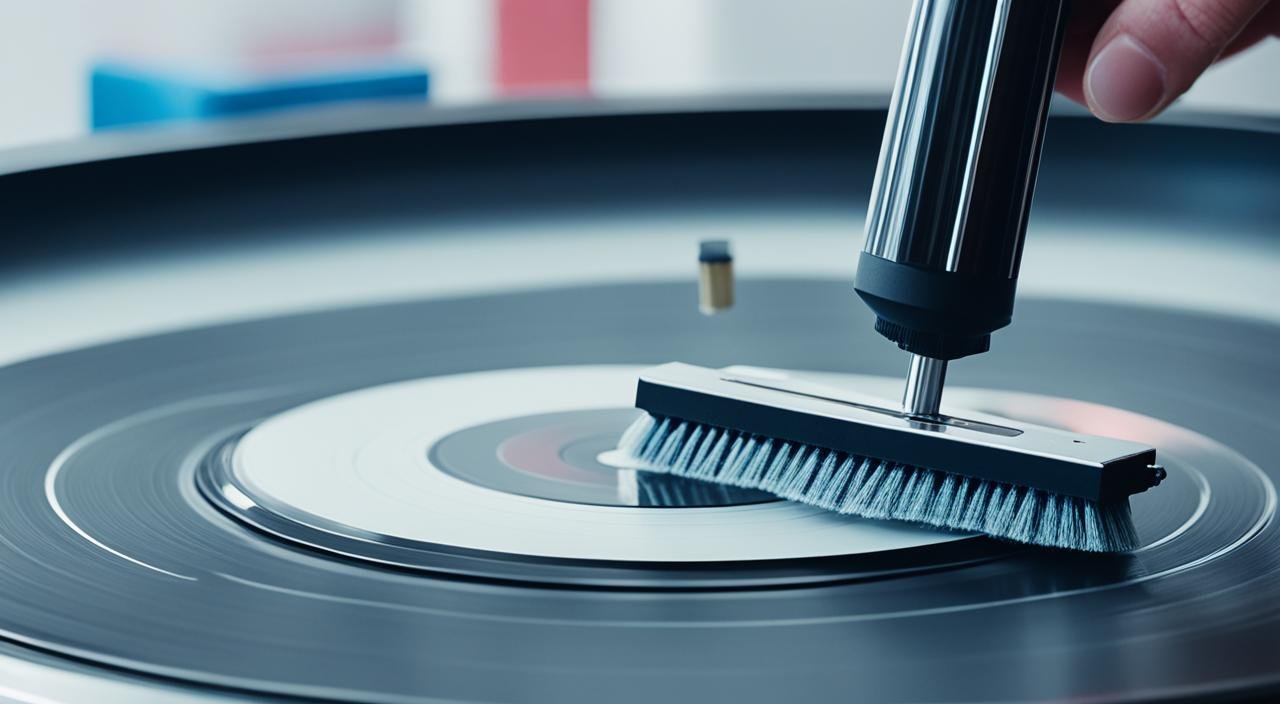
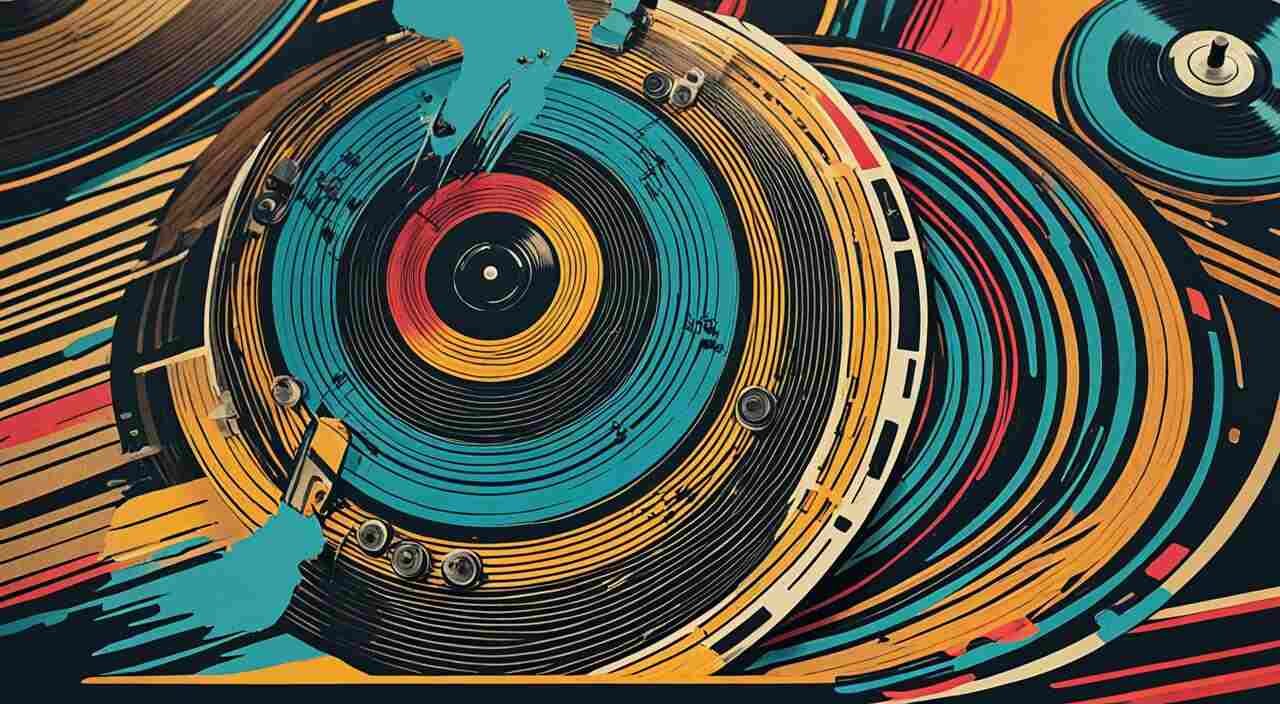
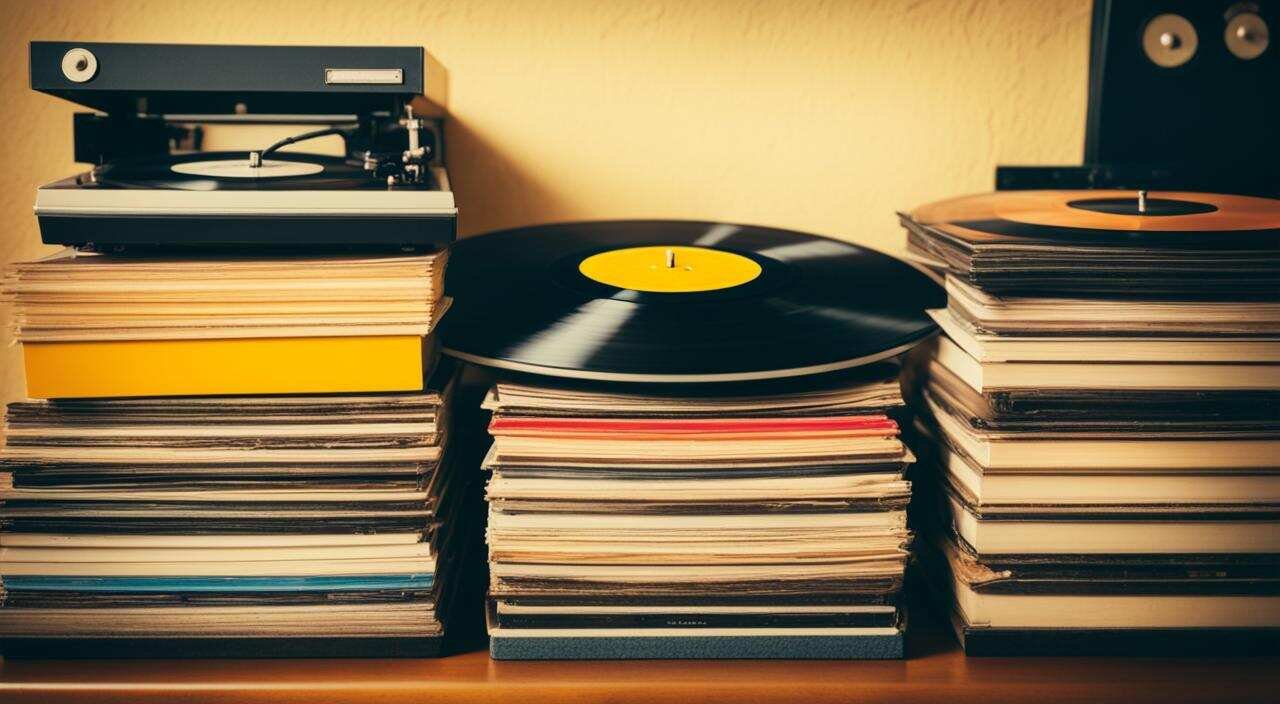
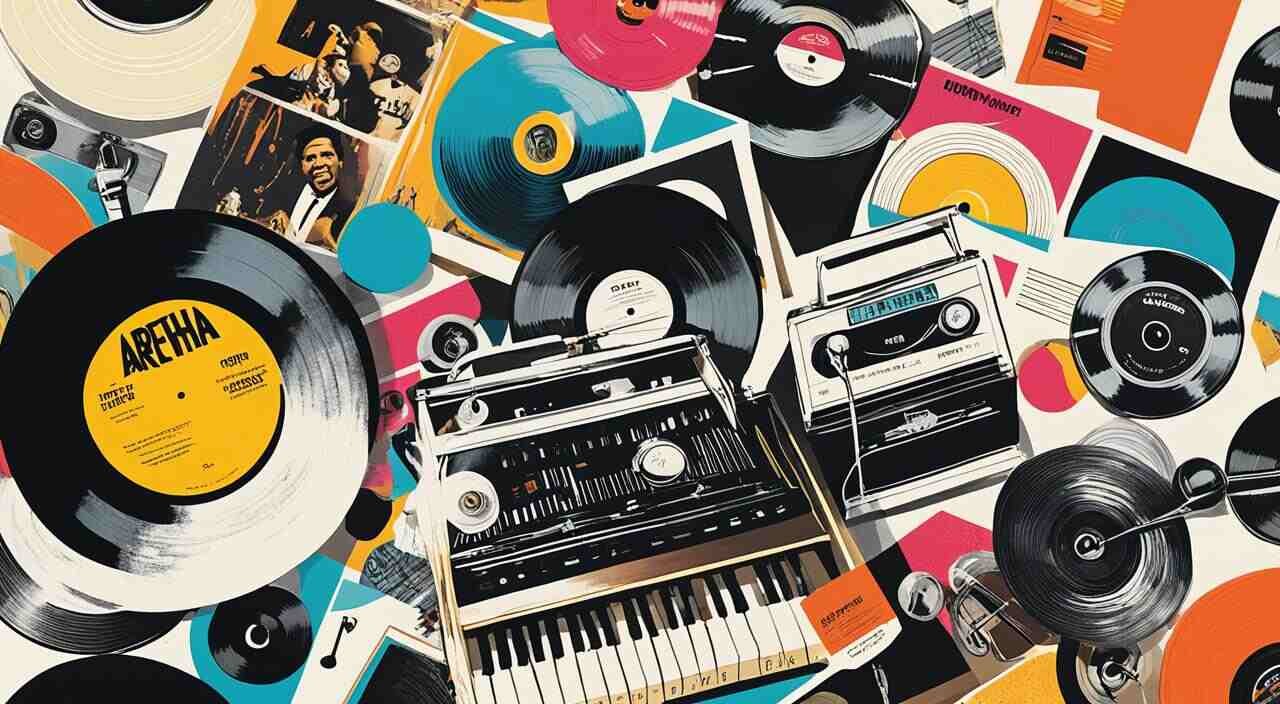

Leave a Reply